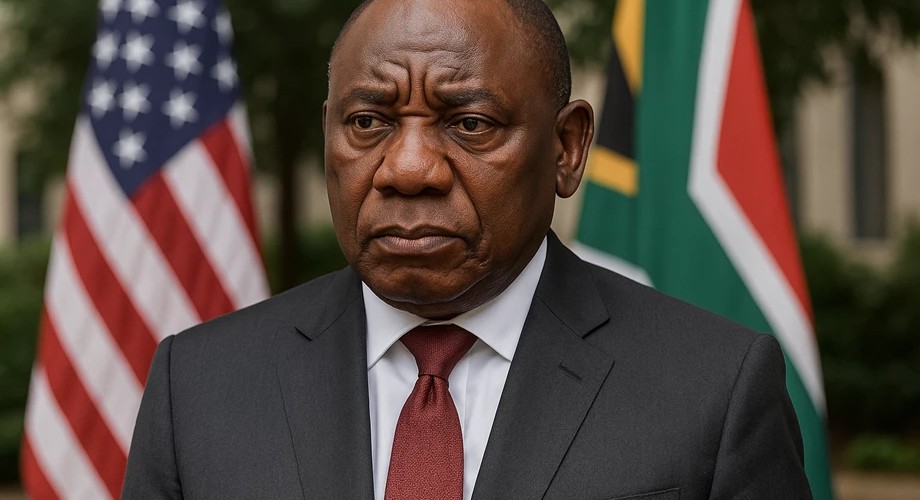(3 Minutes Read)
President Cyril Ramaphosa has responded to the growing uncertainty in global trade, particularly following new US tariffs imposed on South Africa and several other countries this month. After US President Donald Trump’s unexpected tariff announcement, Ramaphosa acknowledged the potential damage that such “unilateral and coercive measures” could inflict on South Africa’s economy, while emphasizing that the country is not standing idle.
On April 5, the United States implemented a 10% global tariff on imports, with the possibility of raising it to as high as 50% for countries with significant trade imbalances. South Africa was hit with a 31% tariff, though this measure has been temporarily suspended for 90 days.
While South Africa’s gold and minerals remain largely exempt from these tariffs, key sectors such as agriculture and automotive manufacturing—which together employ over 1 million people—are now at risk. With the African Growth and Opportunity Act (AGOA) under threat, South Africa is preparing for a challenging trade environment.
“South Africa is vulnerable to these kinds of disruptions,” Ramaphosa stated. “However, we are actively building resilience and seeking new partners.”
Building a Resilient Trade Strategy
Ramaphosa outlined a strategic approach to reduce South Africa’s dependence on any single market. The country’s efforts include:
- Diversifying export markets to mitigate exposure to global economic shocks
- Strengthening local value chains by boosting domestic production
- Identifying new export opportunities for agriculture and manufacturing sectors
- Supporting strategic industries with targeted government investments
One of the most promising developments is South Africa’s deeper engagement with the African Continental Free Trade Area (AfCFTA), which provides access to a vast, unified African market.
New Export Markets and Partnerships
Ramaphosa highlighted several recent trade successes that are already showing positive results, including:
- Gaining access to Thailand for South African apples after a 16-year wait
- Expanding avocado exports to Japan
- Increasing meat exports to Saudi Arabia
- Securing new trade agreements for grape exports to the Philippines
Additionally, South Africa recently signed a R90 billion trade and investment package with the European Union, aimed at expanding the reach of South African products in Europe.
“We are strengthening trade where we already have agreements, like with SADC and SACU,” Ramaphosa noted. “But we are also looking beyond these regions.”
Local Investment is Key
Along with expanding global trade, Ramaphosa emphasized the importance of investing in South Africa’s local industries. The 2025 Budget includes increased funding for:
- Manufacturing
- Agro-processing
- Export incentives for local producers
The goal is to not only weather the current trade challenges but also enhance South Africa’s competitiveness in global markets by increasing support for locally-made products.
Ramaphosa made it clear that South Africa is not abandoning the global trade system. Instead, the country will continue to advocate for fair, rules-based trade, especially for developing nations, which are often relegated to the lower end of global value chains.
“Trade must be predictable and governed by shared rules,” he asserted. “Only then can developing economies truly thrive.”
Read Also;
https://trendsnafrica.com/kenyan-fuerte-avocado-exports-to-turkey-soar-amid-red-sea-crisis/
A Strategy of Reinvention, Not Retaliation
South Africa’s response to the US trade shifts is focused not on retaliation but on reinvention. By investing in local industries, diversifying export markets, and forming new trade partnerships, President Ramaphosa aims to turn global trade uncertainty into an opportunity.
As the 90-day tariff suspension period draws to a close, all eyes will be on the effectiveness of this new strategy.





